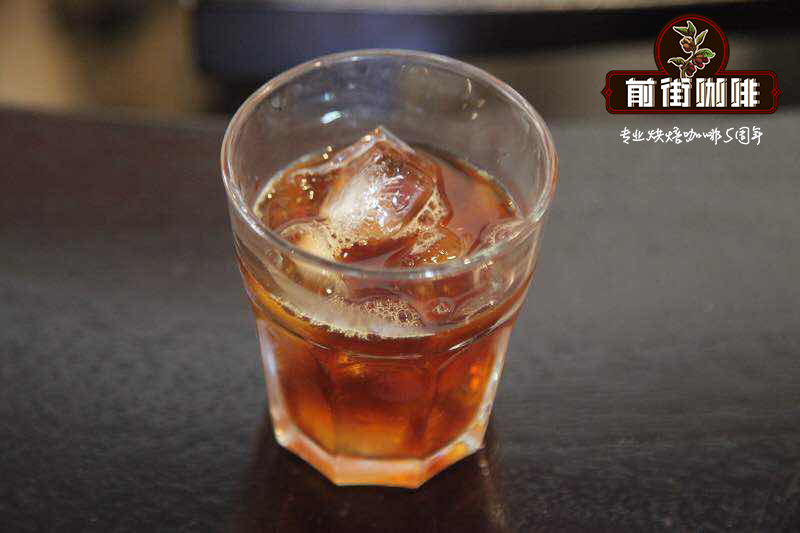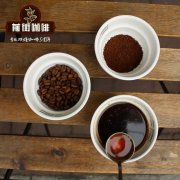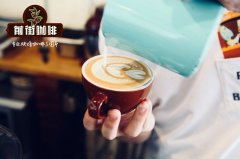One of the best coffee brands in Indonesia | how about coffee in Indonesia [Sulawesi Toraja Coffee]

Professional coffee knowledge exchange more coffee bean information please follow the coffee workshop (Wechat official account cafe_style)
One of Indonesia's best coffee brands. How about Indonesian [Sulawesi Toraja Coffee] coffee? How to cook it?
On the island of Sulawesi under Indonesia's jurisdiction, the equatorial line crosses the northern peninsula and covers an area of 170,000 square kilometers, which is about the size of Taiwan, while the Tana Toraja plateau is located in the middle of the island, with steep mountains and thousand Michael peaks everywhere. It also belongs to volcanic geological soil, which is a suitable geographical condition for growing coffee. Toraga is located in South Sulawesi, just at the equator, near the towering Sesean Mountains, lush forests and extremely beautiful scenery. The Toraga people, who have lived in this highland for generations, are independent and are rumored to be descendants of cross-sea traders in the Indo-China Peninsula (perhaps Cambodia). They crossed the sea and came to the highlands of Sulawesi to abandon fishing and go to farming. Over the centuries, they have maintained a unique cultural identity, keeping their own language, customs, religions and complex funeral customs. The Toraga people have exquisite craftsmanship. They build their houses very much like their ancestors' sea boats, called tongkonan, and are world-famous. Sulawesi, known as Celebes in Dutch colonial times, is one of the large islands in the multi-island country of Indonesia, located in the northeast of Tali, across the ocean from the familiar island of Sumatra, but at about the same latitude. Unlike other Indonesian islands, Sulawesi is geologically very old, dating back to 100 million years ago! The iron-rich soil is very suitable for growing coffee, which has been grown by the locals before the colonial era.
In the early 18th century, the Dutch East India Company introduced Typica coffee from Ethiopia in East Africa to Indonesia through India. Tibica is considered to be an ancient and noble variety with a fragrant and sweet flavor. Jember, a Surabaya coffee research institute in East Java, has worked hard to promote the ancient Typica left by the Dutch, as well as the Tibica variant S795 (locally known as Kopi Jember). However, in order to resist the spread of leaf rust in northern Sumatra, Aceh and other producing areas, S795 has been pulled up one after another to plant Robusta, Ateng and Catimor with strong disease resistance and high yield, at the expense of these new varieties with far inferior flavor.
Sulawesi has been around for more than 100 million years, so the soil is more mineral-rich than other Indonesian islands, and the coffee produced is brighter. Among them, the production near Tana Toraja Mountain is the most famous. It has a hint of spice, including pepper, cinnamon and nuts. The Toraga of Sulawesi, because of their independence, were lucky to never eradicate their Tibica or S795.
The emphasis on accuracy of detail is reflected in coffee cultivation, which makes Toraga a unique coffee producing area in Indonesia. They retain ancient coffee trees, some as old as 250 years old, where the Japanese operated coffee plantations before World War II. The war broke out, the coffee garden was forced to close, and Toraga coffee became a legend of disappearance, and production did not resume until after the war, but production was limited. Before the 1980s, the price of raw beans was as high as $12. After the increase in acreage, the price gradually decreased.
Joint Venture of Japan and Indonesia established TOARCO in Toraga in 1976 to introduce traditional washing methods to Sulawesi to encourage local farmers to continue to grow Tibica and Tibica mixtures. Local small farmers can be certified by Toarco if they meet the production standards set by Toarcos, which cover planting, harvesting, storage, transportation and drying. Toraga's altitude is already quite high, coupled with superior bean seeds and treatment, it can be said to be the best of Indonesian beans.
In most parts of Indonesia, the traditional semi-washing "wet planing" (wet-hull method; locally known as Giling Basah) is used. Small farmers do not have the money to build washing plants. In order to buy processing time, when the beans are still quite wet, they usually sell them to middlemen on the market and then resell them to large processing plants. In this process, the fruit flavor and aroma of coffee are often gone, but with a special soil flavor and grass flavor. In order to give full play to the dominant flavor of Tibica beans, TOARCO introduced the Central and South American washing method instead of the wet planing method. The popular Wet hull (Giling Basah) method in Indonesia is that after washing off the pectin layer, the coffee rushes away the grain without waiting for it to dry. The water content of wet coffee beans is as high as 50%. The middleman collects the kernels and dries them out of control: exposure to the sun loses organic acids, while drying in the mud gives beans a chance to inhale the smell and dirt.
Sumatran coffee is best known for Manning. The brand, which is neither a bean seed nor a producing area, comes from the mistranslation of the name of a Mandailing. Mantenin is also rich in Mount Jiayu in Aceh Province and in the Lindong producing area around the northern volcanic lake Doba. The names include "Green Treasure" and "Blue Eye", which are colorful. Sumatran coffee is generally supple, dense, low-acid, with earthy, cedar, cut tobacco and cocoa flavors.
Toraja coffee is produced in the Toraja Heights of Sulawesi, Sulawesi, Indonesia, hence the name of coffee beans. The Toroja Highland on the Sulawesi Islands, which is 1500 meters above sea level, is located in the mountain area of the equatorial ring belt with clouds around the four seasons, with an average annual rainfall of 1000--2000mm. The local volcanic geological soil is rich in organic matter, which is most suitable for the growth of high-quality coffee trees. Towering terrain, adequate sun, large temperature difference between day and night, room temperature maintained at 24 ℃-25 ℃, coupled with the rich nutrients of volcanic soil in the fertile tropical highlands, is the most suitable height for the growth of Indonesia's high-quality Arabica bean coffee forest.
The farmland of local small farmers in Toraga is located above 1400 meters, and the batch planting of The Barn is even higher above sea level. Soybean variety Smuri 795 is a high quality Typica Hybrid, which is more resistant to disease than general Tibica. This Toarco Jaya is smooth, easy to taste, and very sweet. Dried plum and licorice flavor, nutmeg and winter spice flavor, Italian concentrated or made into Italian base drink, hand flushing is also very suitable.
Qianjie recommended cooking:
Filter cup: KONO filter cup
Water temperature: 88 degrees
Degree of grinding: small Fuji degree of grinding 4
Cooking method: the ratio of water to flour is 1:14, 17g powder, 25g water for the first time, steaming for 30s, and 238g water for the second time. The extraction time is about 2:30 seconds.
Analysis: there are not many ribs at the bottom of the Kono cup, and the filter paper clings to the filter cup to achieve the purpose of limiting air flow, which can make water and coffee powder have longer contact soaking time in the filter cup and ensure the extraction time and extraction rate of rough grinding. In this way, the coffee powder can be fully extracted, enhance the mellow taste and make the taste more concentrated.
Important Notice :
前街咖啡 FrontStreet Coffee has moved to new addredd:
FrontStreet Coffee Address: 315,Donghua East Road,GuangZhou
Tel:020 38364473
- Prev

Which brand of Indonesian coffee is better? What's so special about the treatment of Sulawesi coffee in Indonesia?
Professional coffee knowledge exchange more coffee bean information please follow the coffee workshop (Wechat official account cafe_style) which brand of Indonesian coffee is good? What are the characteristics of the treatment of Indonesian Sulawesi coffee? The Tana Toraja Mountains in southwestern Sulawi, Indonesia (South Sulawesi), 1700 meters above sea level, belong to alpine volcanic terrain and are exposed to the sun.
- Next

What are the coffee brands worth buying in Indonesia? Sulawi, Indonesia [West Tanatolaya producing area]
Professional coffee knowledge exchange more coffee bean information please follow the coffee workshop (Wechat official account cafe_style) which coffee brands are worth buying in Indonesia? Sulawi, Indonesia [West Tanatolaya] what is the flavor of AA washed beans? Indonesia spans both sides of the equator, the hot and humid rainforest climate is rich in rainfall, and the fertile volcanic loam brings rich support for coffee.
Related
- Detailed explanation of Jadeite planting Land in Panamanian Jadeite Manor introduction to the grading system of Jadeite competitive bidding, Red bid, Green bid and Rose Summer
- Story of Coffee planting in Brenka region of Costa Rica Stonehenge Manor anaerobic heavy honey treatment of flavor mouth
- What's on the barrel of Blue Mountain Coffee beans?
- Can American coffee also pull flowers? How to use hot American style to pull out a good-looking pattern?
- Can you make a cold extract with coffee beans? What is the right proportion for cold-extracted coffee formula?
- Indonesian PWN Gold Mandrine Coffee Origin Features Flavor How to Chong? Mandolin coffee is American.
- A brief introduction to the flavor characteristics of Brazilian yellow bourbon coffee beans
- What is the effect of different water quality on the flavor of cold-extracted coffee? What kind of water is best for brewing coffee?
- Why do you think of Rose Summer whenever you mention Panamanian coffee?
- Introduction to the characteristics of authentic blue mountain coffee bean producing areas? What is the CIB Coffee Authority in Jamaica?

